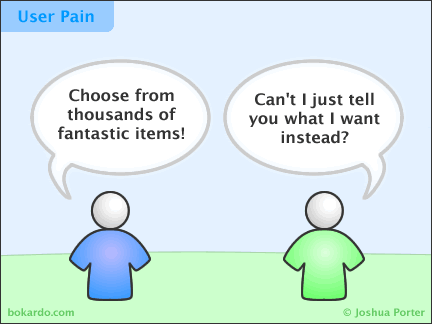May 14th
Give people something to copy
Quick blogging tip: When someone writes an incredibly flattering post about you, don’t immediately link to the flattering post. Why?
Because many times when someone does this, the link can actually be hurtful because it’s not a real link to quality content. The author, the flattered one, often pretends they’re really writing about the rest of the post and not the part about themselves. But they’re really writing to point out that someone likes them.
I’m not immune to this. I’ve done it too. But its completely obvious. In some cases, someone will actually point to someone else’s post and not mention that there is a part of the post about them…pretending to ignore it. That is so weird though, when you go read the post and wonder…does the person think I’m an idiot?
Instead, wait until that person writes something really cool, and then link to that.
Continue Reading: Give people something to copy

